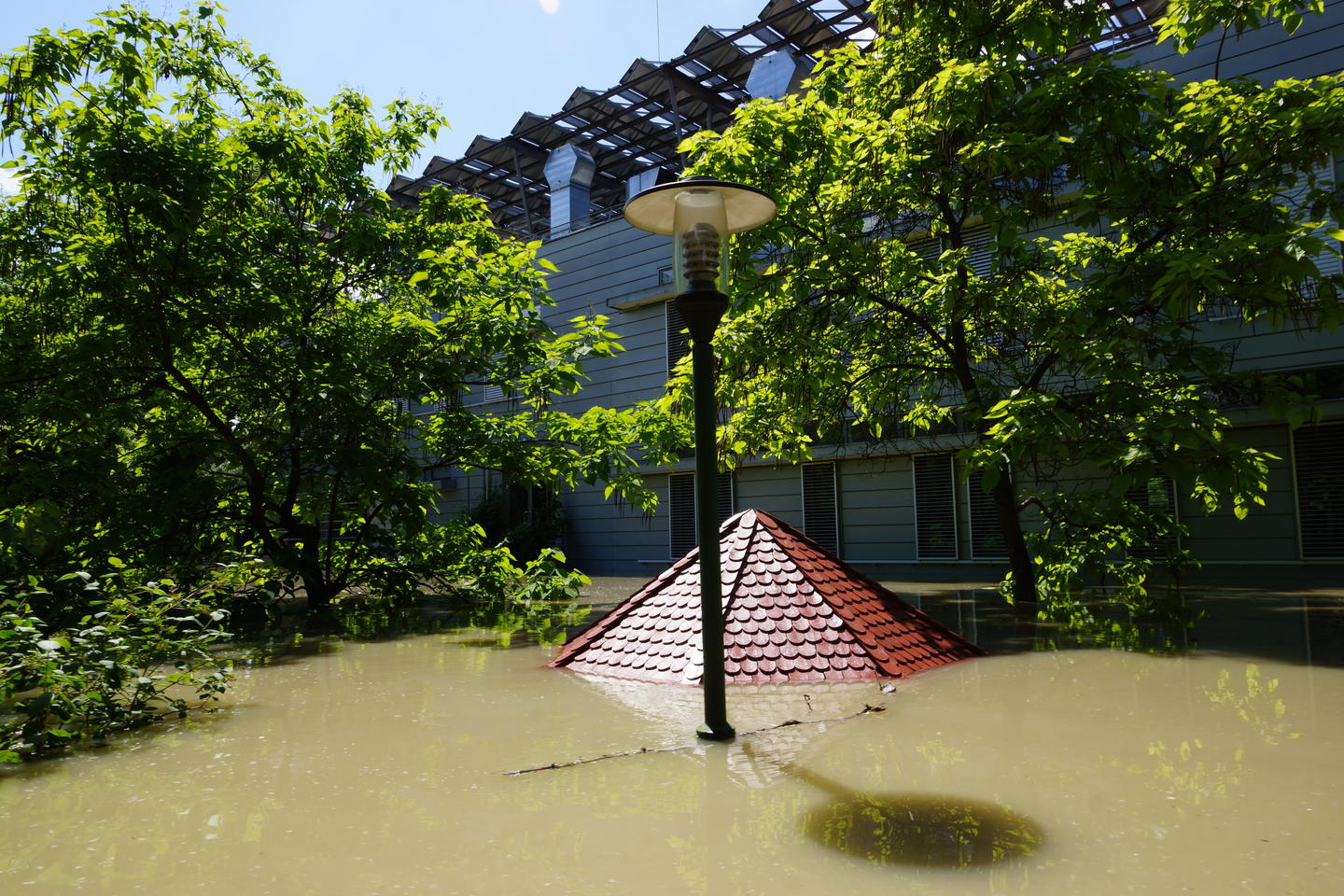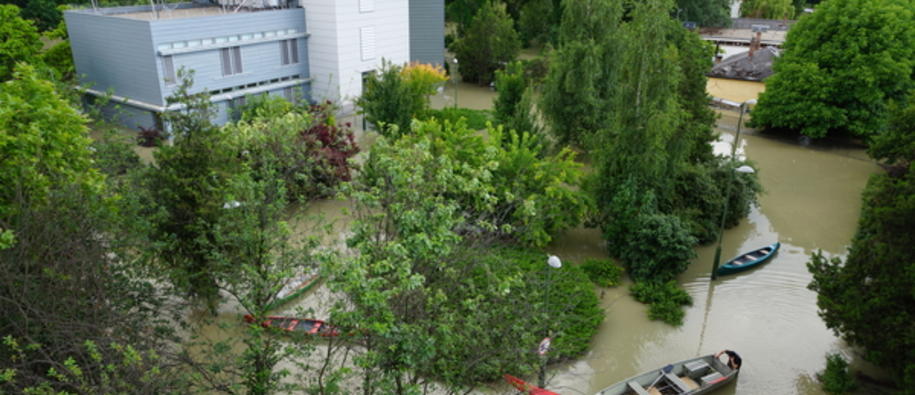The fifth Assessment Report from the Intergovernmental Panel on Climate Change (IPCC) is clear: Climate change is happening, and it is happening now. Climate change is already having an impact on Hungarian agricultural production, ecosystems and biodiversity. Water levels are often too low, or as flooding of the Danube illustrated, too high. Last year’s flooding had a significant negative economic and human impact, when families had to leave their homes and belongings behind. The dramatic images clearly exposed Hungary’s vulnerability to climate change.
“The flooding of the Danube last year was the worst to happen to Hungary in living memory”, Bálint says.
Located in Szentendre close to the Danube, the office facilities of the fund operator for the adaption to climate change programme, REC (Regional Environmental Centre), was also hit by the sudden increase in water level. State and local government joined forces with local people and volunteers making an heroic effort to save what could be saved. Despite these efforts, local communities remained deeply affected.
“Buildings needed serious restoration, and for some families and businesses the insurance did not cover flood damages. For REC, the office buildings could not be accessed for more than a week, and the restoration itself took several weeks,” Bálint outlines.
Addressing vulnerability
Iceland, Liechtenstein and Norway provide more than €7 million to help Hungary adapt to climate change. The programme supports a wide range of different projects at both a national and local level. Among these projects is the development of a national adaption geoinformatic* system (NAGiS), which will be used to improve the collection of data on climate adaption and vulnerability. According to Bálint, there is a considerable information gap:
“There is little systematic data gathered on climate change impacts in Hungary, this will address the shortage of reliable scientific data.”
The need for capacity building and information sharing at a local level is also an important component of the programme. A special emphasis is put on helping local communities produce climate adaption strategies. Training sessions will be held for local authorities to enable them to develop vulnerability assessments and adaptation strategies.
“Ways of adapting to climate change are not well known at a local level, so the need for capacity building and information sharing is urgent,” Bálint points out.
Adding value
The Norwegian Directorate for Civil Protection (DSB) participates as the donor programme partner.
DSB has the responsibility for carrying out national, regional and local preparedness and emergency planning in Norway.
Bálint is welcomes the cooperation between REC and DSB:
“They are always very supportive in providing advice and support for our projects,” she ends.
Read more about the ‘Adaptation to climate change’ programme here
Read more about other programmes and projects by visiting the Hungarian country page
*Geoinformatics is the science and the technology which develops and uses information science infrastructure to address the problems of geography, geosciences and related branches of engineering.

